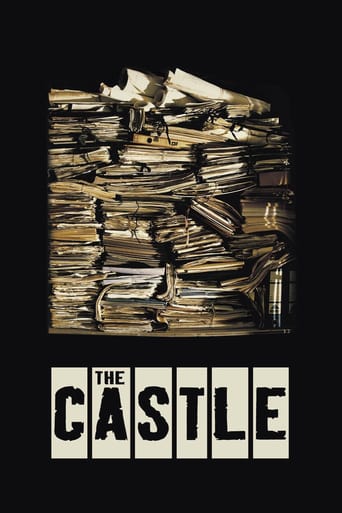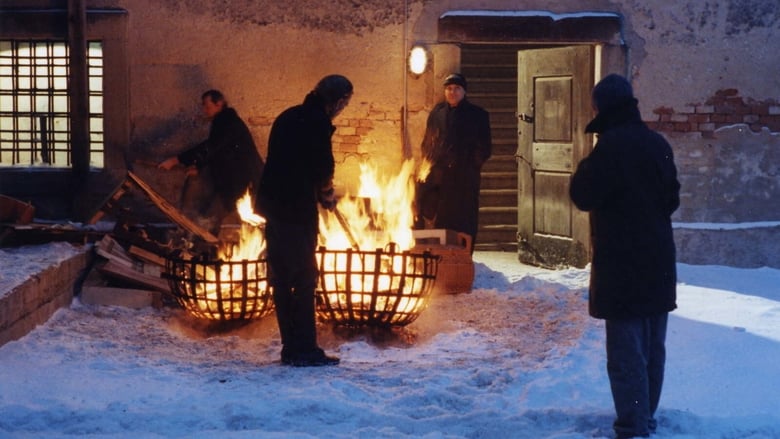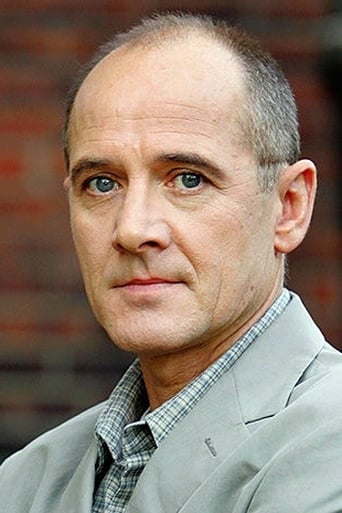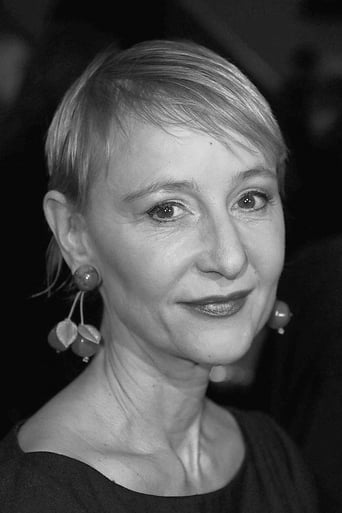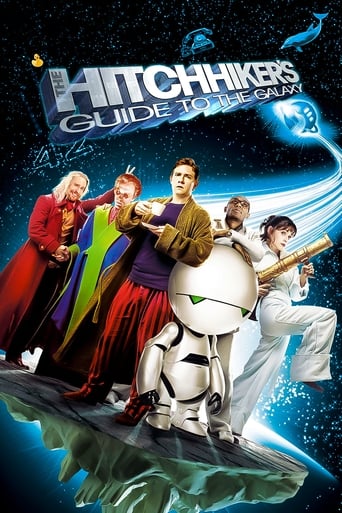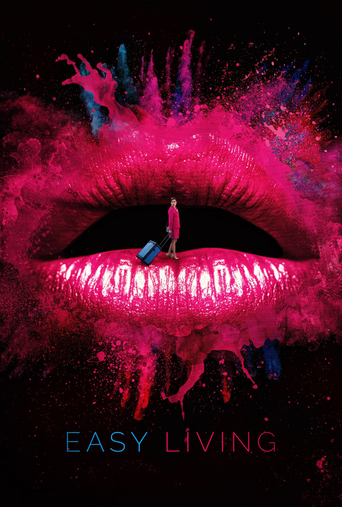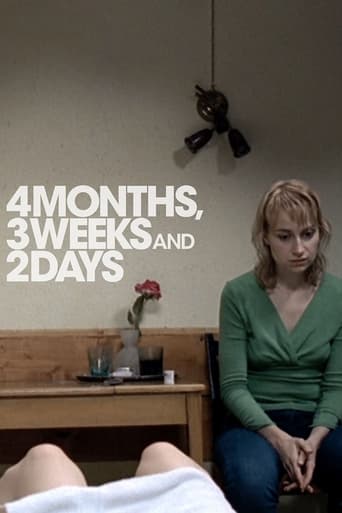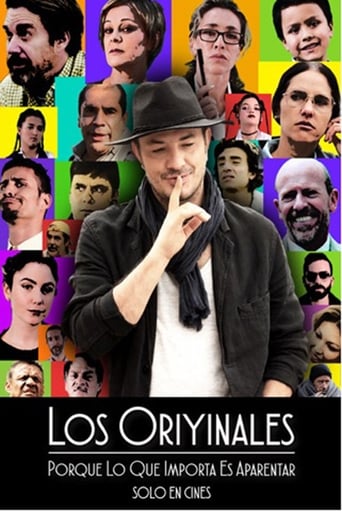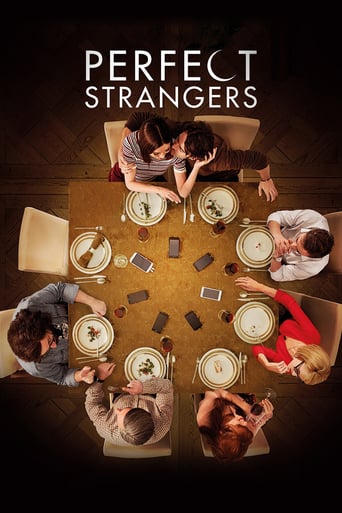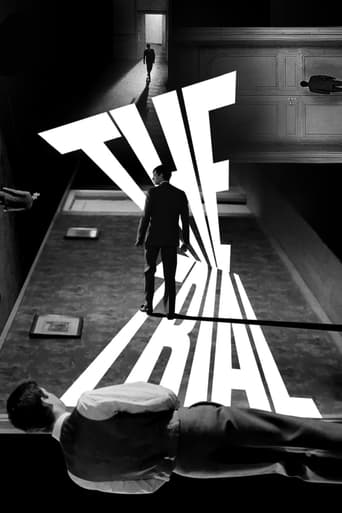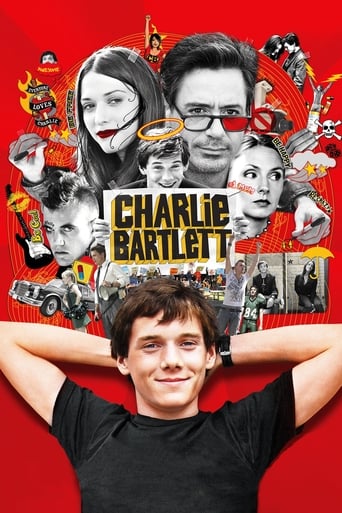The Castle (1997)
Michael Haneke's adaptation of Franz Kafka's unfinished novel Das Schloss. K arrives in a remote village a stranger. In attempting to establish himself there, he enters the nightmarish world of the castle bureaucracy.
Watch Trailer
Cast


Similar titles
Reviews
To me, this movie is perfection.
The acting in this movie is really good.
The movie's neither hopeful in contrived ways, nor hopeless in different contrived ways. Somehow it manages to be wonderful
This is one of the best movies I’ve seen in a very long time. You have to go and see this on the big screen.
I really like Amour and White Ribbon but this is utter claptrap. So boring and such a dull story line which abruptly ends without any conclusion. Visually it's a bore. Hitchcock would have called this "Photographs of people talking". The film is heavy on dialogue. There was little point in making this into a film as 99% of the information is given through dialogue and narration and the story might as well have been a radio play. Don't waste 2 hours of your life.So if it is supposed to be some poetic reflection on life or a particular issue then it needs to be clearer. In my opinion a film should be understandable in its own right. If I need to read Kafka in order to watch the film, then that is a failure in my opinion.
I'm crazy about Kafka. THE TRIAL is my favorite by Welles, and Juracek's homage Joseph KILLIAN is brilliant as well. So the thought of Haneke directing The Castle seemed like a promising idea. And he gets some of it right. The story is very faithful... obviously certain omissions are necessary, but the gist of it is there, and the scenes generally play out as they do in the novel. The long scenes juxtaposed with abrupt time cuts do a good job of evoking the unusual rhythms of Kafka. And Haneke knows better than to try to make K. an entirely sympathetic character. But it doesn't feel quite right. I have mixed feelings about the aesthetic. The drab palette is appropriate, but I couldn't help thinking that black and white would have suited the material better. And the voice-over felt entirely unnecessary to me. The novel is told in the third person voice, but it feels first person. Having some narrator chime in every few minutes didn't add anything. And it just didn't seem absurd enough. Perhaps it's a book that doesn't condense well, because you don't get the sense of K.'s epic, labyrinthine struggle. But it's a good effort.
Michael Haneke illustrates Franz Kafka's manuscript for the novel bearing the same name, in his film 'Das Schloss'. We can call it a cinematic rendition of the plot. The film begins with the scene of K. entering the door of the inn, which commences with the still image of a mountain village posted on the door. Consequently the film ends unexpectedly in the middle of a scene which presents K. walking to the horse stables waiting to find Gerstäcker's mother reading. It's like you read a text and you stop where it stops. This illusion is perfectly staged by Haneke.However, it is a film and not a novel. You cannot control the point where you would like to stop. You cannot read again a paragraph; everything is rendered linearly, in a narrative form. Basically, in this instance the film as a medium encompasses the novel. It would feel inappropriate to say just that about this film.What is remarkable in Haneke's work is the way he recreates the absurd universe of Franz Kafka: by using long static shots, lack of conversation, abrupt ending of scenes and arranging all narrative elements to express in every moment a state of insecure and temporary state of facts.The image is outstanding in terms of expressiveness, at least. There are lots of nuances of blue and brown and the light is used very carefully to create special types of dark settings resembling Rembrandt's paintings.The actors' performance must be highly credited, especially in the case of Ulrich Mühe and Sussane Lothar who are playing K. and Frieda, respectively.If making films is about relying on other artistic forms, especially on the novel and if you believe in the concepts of mimetic and cathartic art, then at least you have to come up with something outstanding in these terms. Michael Haneke manages to do this because his very own approach of film-making.
A land surveyor,K.,is invited to the Castle to do some work for the Count,but when he arrives at the Village,he finds that nobody is expecting him.K.'s attempts to get into the Castle are as unsuccessful as his attempt to settle into the local village.He is greeted by a compact reluctance from the villagers,who with a systematic inefficiency prevent him from any prospects of even approaching the castle.The harder the stubborn K.,tries,the farther he moves from his goals.The impenetrable,seemingly haphazard but strangulating bureaucracy of the castle hinders the clarification of his social and existential situation.K. remains what he was on the day of his arrival:a stranger who is barely tolerated...Haneke's film version of Kafka's famous unfinished novel is an unusually faithful and highly successful literary adaptation.Kafka is,with his absurd,pessimistic yet still very realistic idea of the world,a sort of soulmate of Haneke's.

